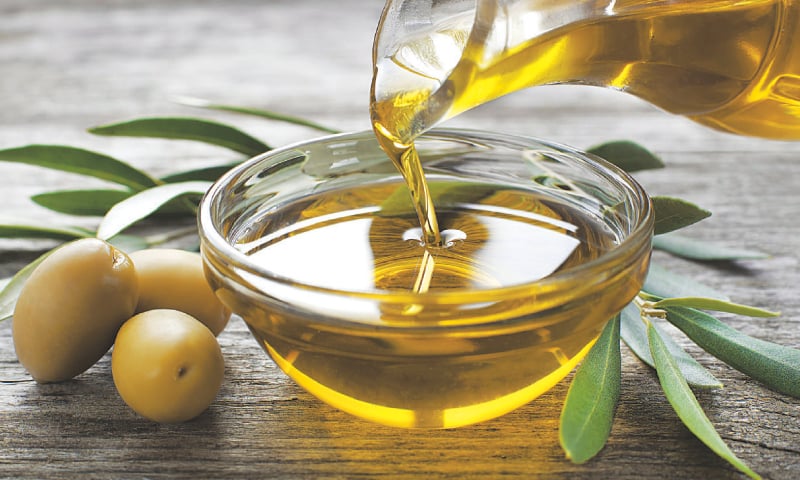Olive cultivation in Pakistan
There is numerous doable for
olive cultivation in Pakistan. The estimates have published that if eight million wild olive bushes present in numerous provinces are grafted and transformed into the productive olive then there is a possible of earning a most of 1 billion bucks yearly. Similarly, we may earn a most of nine billion dollars annually if olive cultivation is made on cultivable doable waste lands. The olive appears to had been native to Asia, being one of the crucial earliest timber cultivated via man. The trees belong to oleaceae circle of relatives and include 30 genera with 600 species. The plant is xerophitic upon species of tree the olea-europea or Europium olive.
Olive is an integral a part of the nutrition of the folk of the Mediterranean lands and is a source of fat in vitamin of those other folks. Olive oil is broadly used in nations the place fats are scarce. In Indo-Pak sub-continent a wild olive,
olea cuspida is found throughout the northwest Himalayas and other adjacent hills however cultivated olive olea Europea is not grown anywhere on commercial scale. This plant is in the community referred to as Zytoon in Urdu, Showan in Pushtu, Khat in Brahavi and kow in Punjabi, Sindhi and Saraiki.
Pakistan isn’t a traditional olive-producing country however a wild subspecies of the olive tree known as
Olea cuspidata does develop in different parts of the country. Since 1986 olive timber have been planted experimentally, starting with a venture funded by means of the Italian government. Another govt challenge to plant over five million olive vegetation used to be unsuccessful when just one percent of the saplings survived. However subsequent planting drives have borne fruit.
 Significance of olive oil
Significance of olive oil
The significance of olive oil has also been narrated several times within the
Holy Quran. During the mid of final century;( round 1950s), various grafted olive plants of several varieties were imported and planted in Kashmir, Simla and Kangra hills at Harnai, Fort Sandeman (Zhob) in Balochistan, Peshawar, Swat (NWFP), Rawalpindi, Sargodha, and Jhelum (Punjab) districts.
120,000 olive trees are being planted in Pakistan’s
As part of a tree planting marketing campaign, 120,000 olive trees are being planted in Pakistan’s Balochistan province.
Half of the new saplings to be planted had been grown in nurseries on-site whilst the rest had been imported from Italy. The olive plantation will quilt a complete house of 14,000 acres (five,665 hectares) in
Balochistan, Pakistan’s greatest province on the subject of house, which is located within the south-west of the country.
History of Olive in Pakistan
Olive used to be offered first time in Pakistan by means of PARC right through 1986 beneath an Italian Project titled “Fruit, Vegetable and olive Project” funded by Government of Italy. After this project a common survey used to be conducted to estimate the choice of naturally befell wild olive specie “Olea Cuspidata” and found more than 80 Million wild Olive plants in different district of Pakistan. Under every other olive venture of federal government 5.five million olive crops have been most sensible worked however less than 1% plants survived in the results of top operating because of control of most sensible worked plants.
Current standing of the Project
The project “Promotion of Olive Cultivation for Economic Development and Poverty Alleviation” used to be awarded to government of Pakistan by the Italian govt below the Debt Swap Agreement. The project is in operation through PARC, s sturdy coordination device in KPK, Baluchistan, FATA and Punjab provinces. The intention of the project is to extend the local production of edible oils by way of cultivating olive specially to utilize culture-able waste lands in Punjab, Khyber Pukhtunkhwa, Baluchistan and FATA.
Main objectives of the olive promotional undertaking are to amplify the cultivation of olives in selected / recognized areas thru new plantation in Baluchistan, Khyber Pakhtunkhwa, FATA and Potohar. To promote oil cultivation and use of olive oil. To arrange quite a few new olive processing amenities (four oil generators) entire with supporting infrastructures and kit. To stimulate PPP’s for long run control of newly established orchard and oil turbines to verify sustainability and to supply coaching, conduct technical research and supply help to farmers.
Importance of Olive
Olive is excellent supply of fit to be eaten oil and may be used for table objective particularly for pickles. The olive has no longer simplest nutritional and medicinal price but its fat content is also unfastened from ldl cholesterol. It is also used in meals preservation, textile industry and beauty preparation in conjunction with number of different functions. Olive oil is among the few widely used culinary oils that contain about 75% of its fats in the form of oleic acid (a monounsaturated, omega-nine fatty acid). Olive fruit because of its dietary and medicinal significance is a blessing of Almighty/Allah. Olive has been referred in noble method at many puts within the Holy Quran and its importance has been certified via many announcing of Holy Prophet.
Pakistan Agriculture and Research Council (PARC) and Olive
The recent olive tree planting force is a part of a marketing campaign launched via the Pakistan Agriculture and Research Council (PARC), an agricultural analysis group based in the capital Islamabad.
The undertaking is a part of ongoing efforts to become barren land into cultivable plots and advertise the province’s agricultural sector while introducing choice vegetation for local farmers. There are also plans to construct a brand new olive oil mill within the provincial capital Quetta.
Olive Cultivation projects in Pakistan
Gilgit-Baltistan
Meanwhile, in Pakistan’s northernmost area, the federal government of Gilgit-Baltistan has introduced plans to plant 3 million olive timber inside of a length of three months as a part of an environmental conservation mission. Parts of this area have experienced deforestation and damaging environmental effects like soil erosion, landslides and flash flooding. Under the supervision of the woodland and wildlife division, students of local schools and faculties are being inspired to participate in the force by planting olive trees.
Similar projects carried out in several provinces right through the rustic goal to advertise olive cultivation and building up the manufacturing of safe to eat oils. They have included coaching programs for local farmers in olive cultivation, processing and pest keep an eye on, and the setting up of oil extraction turbines.
Pothwar region: The Olive valley
The Pothwar region in the northeastern nook of the country is being developed into an “olive valley” after being recognized as a area appropriate for olive cultivation because of its topography and local weather. Under a present five-year project operating till 2020 and also managed by way of PARC, 2.four million olive trees are being planted there as a cash crop.
Olive oil is already produced in Pakistan along side quite a few other products on the market on the domestic marketplace like olive jam, chutney, pickles and olive-derived products like olive syrup, olive vinegar, olive chocolates and olive tea.












